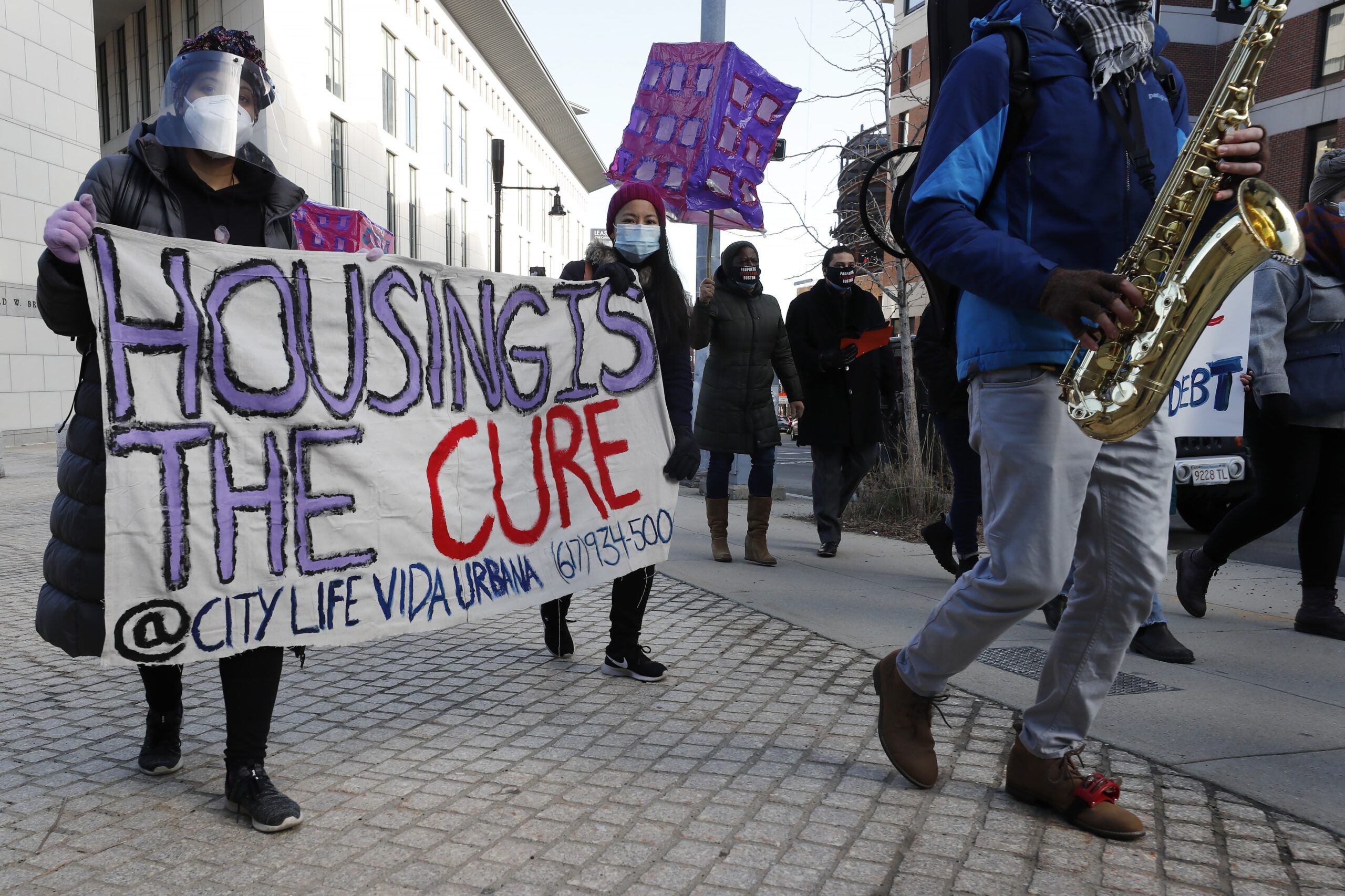Federal Rule Could Give Tenants New Tool Under CDC Eviction Moratorium

Tenants’ rights advocates march in Boston as part of a national day of action to extend the eviction moratorium initiated in response to the COVID-19 pandemic. Advocates are praising a new federal rule intended to strengthen the national eviction moratorium.
Michael Dwyer / AP Photo
Local housing advocates are praising a new federal rule intended to strengthen the national eviction moratorium. They say it gives tenants around Atlanta a valuable tool.
The rule from the Consumer Financial Protection Bureau adds a new requirement for third-party debt collectors. Before they file for eviction, they have to let tenants know a moratorium is in place.
According to the federal agency, the policy, which went into effect this week, wouldn’t affect landlords. But it would cover property managers and attorneys who start cases on behalf of landlords.
Lindsey Siegel, director of housing advocacy at Atlanta Legal Aid, said in the metro area, many attorneys are beginning hundreds of eviction lawsuits every week and their names are on the filings.
“These attorneys are going to be on the hook for violations of this rule,” Siegel said. “I have no doubt about that.”
When those violations happen, she said, tenants can seek damages under federal law.
The notification rule could make a difference for tenants who are protected by the eviction ban.
The Centers for Disease Control and Prevention originally ordered the moratorium last fall. It argued evictions could contribute to the spread of COVID-19.
But tenants only qualify if they sign a declaration to submit to their landlord. They have to promise that they’re behind on rent because they’ve lost their job or income due to COVID-19.
On its website, the National Apartment Association called the new notification rule “bad policy” which only adds to the confusion for landlords.
According to the CFPB, attorneys who enter eviction cases after the point of filing would not be subject to the requirement. But they still must comply with the protections under the CDC order.
If tenants believe landlords or attorneys defied the moratorium, they can submit a complaint to the bureau.
The eviction moratorium lasts until June 30.








